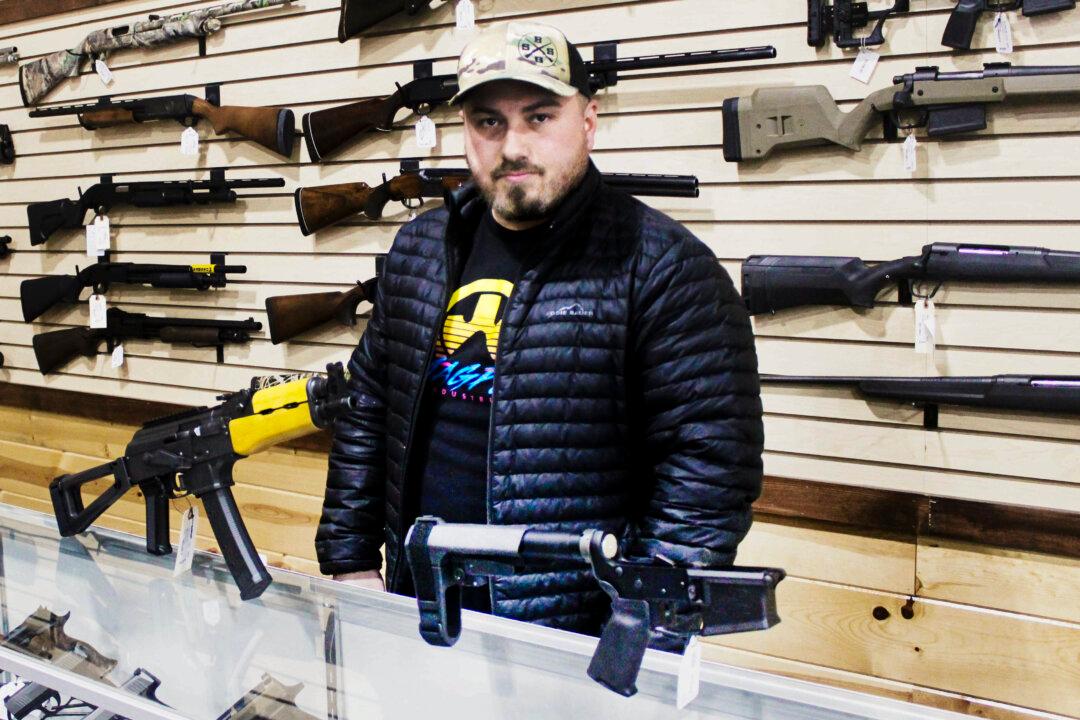A federal appeals court in North Dakota has found that a rule issued by the Bureau of Alcohol, Tobacco, Firearms, and Explosives (ATF) that restricts ownership of pistol attachments known as stabilizing braces is “arbitrary and capricious,” ordering a lower court to reconsider a motion that would block enforcement of the brace ban.
In a 2–1 decision issued on Aug. 9 by the Eighth Circuit Court of Appeals, the majority found that a coalition of 25 Republican attorneys is likely to succeed in a legal challenge against the ATF rule that treats pistols fitted with stabilizing braces as short-barreled rifles and subjects them to various restrictions.





